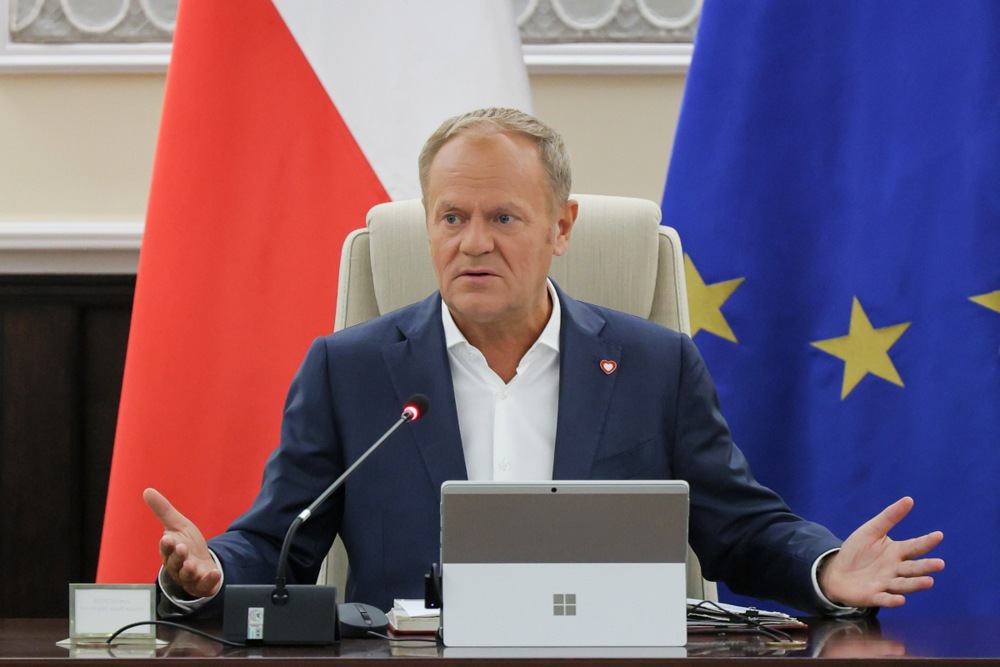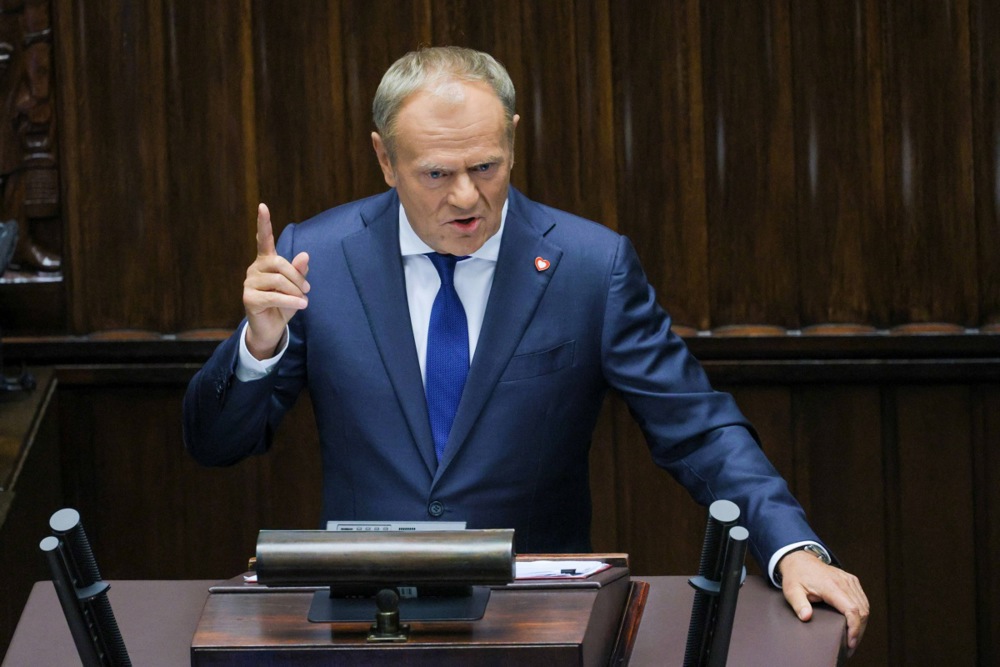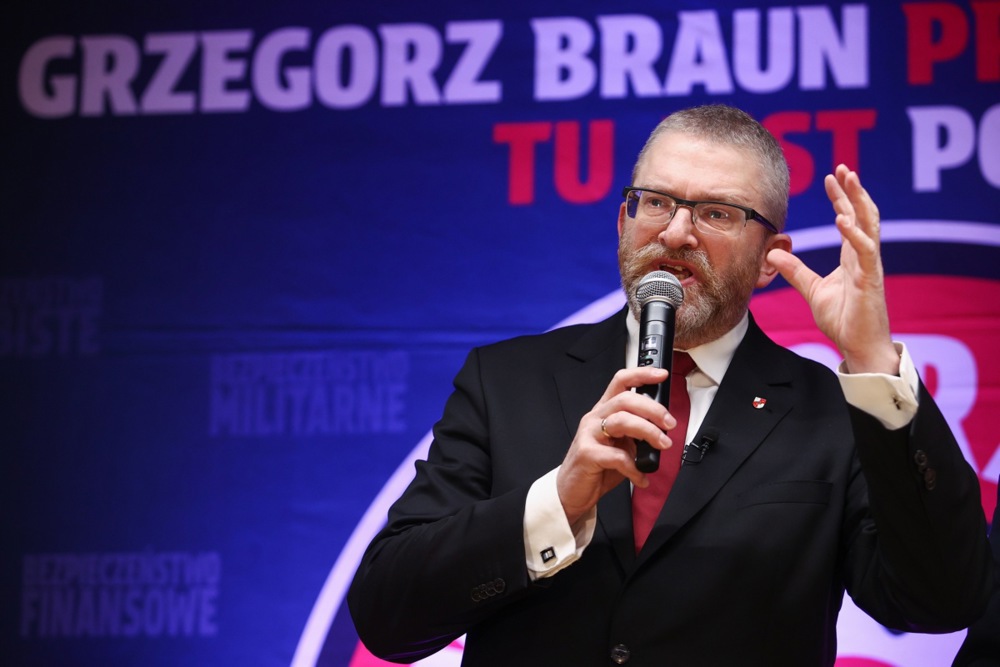Tensions have risen in Poland’s ruling coalition headed by Prime Minister Donald Tusk over the recent presidential election results.
His coalition partners have seemed increasingly reluctant to engage in the current campaign of attempting to overturn the result of the June 1 ballot, which was won by the opposition Conservatives’ (PiS) candidate Karol Nawrocki.
On June 26, Tusk took to X to put pressure on his coalition partners who have baulked at his party’s campaign questioning the validity of both the election result and the court procedure for its validation.
“The leaders of our coalition face a serious test. I understand it’s difficult to find legal and effective ways of acting in this constitutional mess we’ve inherited from PiS. If you don’t know how to behave, then at least behave decently, just in case. And do not allow yourselves to be divided,” wrote Tusk.
His post came in the wake of remarks made by Władysław Kosiniak-Kamysz, defence minister and leader of the centre-right Polish People’s Party (PSL), a partner in the present coalition government.
Kosiniak-Kamysz told reporters he was critical of the 28 judges from the Supreme Court for wading into the controversy over the validation of the election result. The justices had written a letter stating that the Supervisory Chamber of the Supreme Court was illegitimate and therefore could not be involved in the validation of the election result.
Kosiniak-Kamysz accused them of having a selective memory since they made no such statements when the Supervisory Chamber approved the results of the 2023 parliamentary elections and the 2024 local and European Parliament elections, all of which were won by Tusk’s coalition.
The PSL leader has also been critical of allegations of electoral fraud made by Tusk’s family attorney Roman Giertych MP. That was the basis of several instances of votes cast for the government backed candidate Rafał Trzaskowski being attributed to Nawrocki.
Those allegations have led Tusk himself to suggest that a full recount of all votes may be necessary, even though there was no legal mechanism for this to happen.
Kosiniak-Kamysz has also stayed silent on justice minister Adam Bodnar’s demand that votes cast in almost 1.500 polling districts should be examined by public prosecutors to rule out the possibility of electoral fraud.
Senator Jan Filip Libicki, another PSL politician, did not hide his disdain for the Tusk party’s behaviour over the election. On portal Salon24 he mockingly stated: “This would be the first time an opposition falsified an election right under the noses of the government.” That was an allusion to the fact that it holds a majority on the Board of Poland’s election regulator PKW.
Independent Conservative broadcaster TV Republika claimed on June 26 that Kosiniak-Kamysz had met with Sławomir Mentzen, the presidential candidate and one of the leaders of the opposition right-wing Confederation Party, to discuss the present political crisis in Poland.
The PiS has since 2023 been putting out feelers to both Confederation and the PSL about the possibility of these two parties joining forces with them to form an alternative government.
For that to happen they would have to agree on a candidate for PM and propose a constructive vote of no confidence in the Tusk government.
The opposition has accused Tusk and his party of undermining the legitimacy of Nawrocki’s mandate on the basis of sporadic irregularities, which do not come anywhere near to eroding Nawrocki’s 370,000 vote majority.
The Speaker of Parliament, Szymon Hołownia who leads another of Tusk’s coalition partners, the centrist Poland 2050 party, accepted the result of the election. He said he would allow Nawrocki to take the oath of office on August 6. That was the date when outgoing President Andrzej Duda’s second and final term in office expired, unless there was a Supreme Court decision that invalidated the election result beforehand.
The Supreme Court’s Supervisory Chamber was to rule on the validity of the election on July 1 in the wake of over 50,000 protests about irregularities in the counting of the votes cast and government’s refusal to recognise that chamber as a valid court of law.
Małgorzata Manowska, the chief justice of the Supreme Court, appointed by Duda, has said the Supervisory Chamber would continue with its work of examining the more than 50,000 protests, 90 percent of which were identical, referring to alleged irregularities in the counting of the votes in some polling districts.
The Supervisory Chamber was created under the former PiS government and its legitimacy was challenged by the European Court of Justice (ECJ) for failing the test of being “an independent and impartial tribunal established by law”.
The reason for the ECJ’s ruling and Tusk taking that view was because the chamber was composed of judges nominated by the National Council of the Judiciary (KRS). That came about after the KRS became a body elected by parliament rather than, as before, by members of the judiciary.
Earlier this year, Tusk’s coalition had proposed legislation taking the validation of the election results away from the Supervisory Chamber, giving the task to the 15 longest-serving Supreme Court judges — but that was vetoed by the PiS-aligned Duda.
PiS has always argued that, according to European Union treaties, the way countries organised their judiciaries was the exclusive competence of the member states.
The party said the reforms introduced, which increased the influence of the legislature over the system, brought Poland more closely in line with practices in major EU countries such as Germany and Spain.





